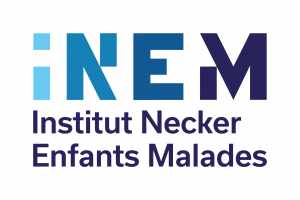On March 19, President Emmanuel Macron said “the Covid-19 crisis reminds us of the vital nature of scientific research and the need to invest heavily in the long term.” We couldn’t agree more! The current pandemic shows that scientific effort is essential to respond quickly to an emerging health crisis. It is just as important for responding to environmental, climatic or social crises, the consequences of which are weighing more and more on our societies.
At a time when national governments and the European Union are implementing economic and business rescue programs, following the Covid-19 crisis, public research in all its disciplines, fundamental and applied, must also be supported. Indeed, the necessary shutdown of research laboratories (excluding Covid-19 research), libraries and archives during the health crisis has had direct negative consequences on research projects, in particular those carried out by young scientists.
When Working From Home Doesn't Work
In addition to the problems affecting a majority of citizens – managing children at home, illnesses, psychological distress, collective effort in this time of crisis – scientists face additional obstacles to their work. On one hand, only part of their research activity can be carried out by home working. The task even becomes almost impossible for those whose activity is mainly experimental, or involves field missions, library archives or the use of databases or software inaccessible from home. On the other hand, for teacher-researchers, the need to develop, adapt and provide e-learning material requires a significant amount of time, which limits the amount of time they can devote to research.
Activity will remain slower even after the lockdown is lifted as many teams will be impacted by the very gradual restart of laboratories and their infrastructure. For instance, in biology, when working with rare animal samples and models, restocking will take several months. Likewise, for those who work on samples that can only be taken at certain times of the year, for example in ecology or botany, more than a year of research will be lost…
This slowing down of the pace of research will have particularly severe consequences for contract staff who are at an early stage in their careers (PhD students, post-doctoral researchers, engineers, technicians) and whose duration of employment contracts is barely enough in normal times to carry out their project.
Indeed, for contract research staff, obtaining permanent positions or fundings to ensure their salary depends on the results of studies and experiences which cannot currently be carried out. These young contract scientists and their teams need help to get over this difficult milestone.
A systematic extension and refinancing of fixed-term contracts are crucial.
Public research in France represents around 0.7% of gross domestic product (GDP). To recognize its importance, it must therefore be given a corresponding share of the budget correction of 110 billion euros voted by the Parliament to finance emergency measures for the current crisis. The Minister of Higher Education, Research and Innovation announced on Thursday 23 April that she authorized establishments to extend staff contracts. However, their funding by the ministry remains uncertain and could even jeopardize the funding of future doctoral or postdoctoral contracts…

A petition has been issued requesting a research rescue plan following the Covid-19 crisis, which includes the automatic extension of three months, funded by the ministry, of fixed-term and research contracts.
Immediab is engaged in this battle for science and has signed the petition. If you too would like to show your support, head over to the link below to sign the petition to help and give perspective to a whole generation of young scientists, those who will help us tomorrow to avoid the next crises or to face them.





